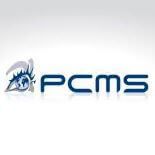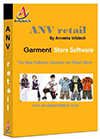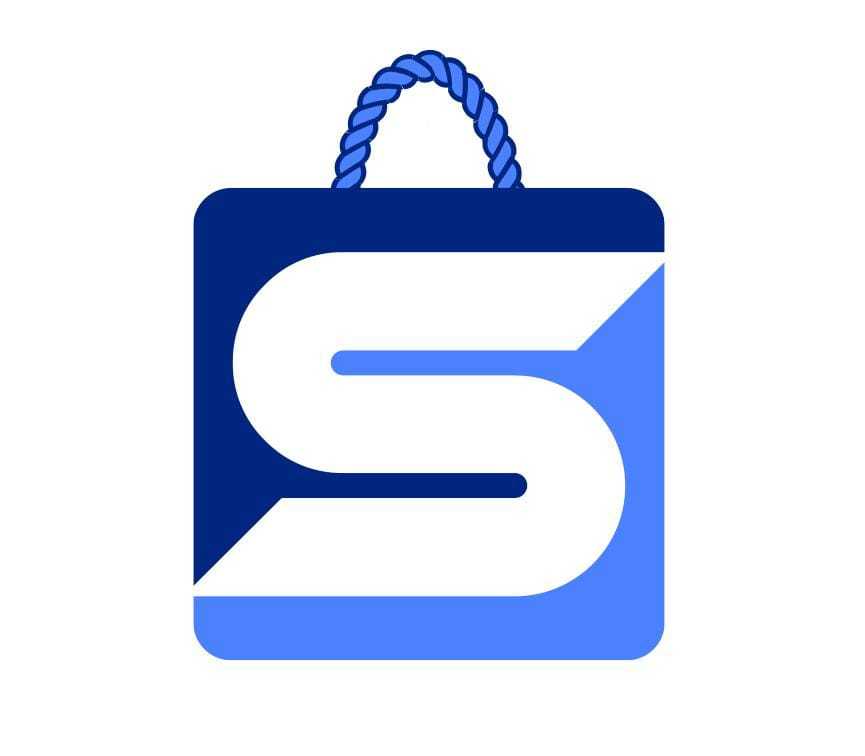Description

metro

Foko Retail
Comprehensive Overview: metro vs Foko Retail
Metro and Foko Retail are two distinct products with different primary functions and target markets. Here's a comprehensive overview of each:
Metro
a) Primary Functions and Target Markets:
- Primary Functions: Metro is commonly associated with public transportation systems found in urban areas. Its main function is to provide an efficient, reliable, and cost-effective mode of transport for large numbers of people. The metro system typically includes underground trains, light rail, or trams that connect different parts of a city or metropolitan area.
- Target Markets: The target market for metro systems includes daily commuters, tourists, and anyone looking to navigate urban environments quickly and efficiently. The focus is generally on densely populated cities where road traffic congestion is high, and public transportation becomes vital.
b) Market Share and User Base:
- In terms of market share, metro systems are a significant part of the global public transport sector, particularly in major cities like Tokyo, New York, London, and Paris. They tend to have large user bases due to their necessity in urban transportation networks. Market share comparison might include other forms of public transportation like buses, taxis, and rideshare services.
c) Key Differentiating Factors:
- Scalability & Coverage: Metro systems offer extensive coverage and can handle high volumes of passengers compared to buses and taxis.
- Speed & Efficiency: Generally faster and more punctual compared to road traffic.
- Environmental Impact: Typically have a lower carbon footprint per passenger than car travel.
Foko Retail
a) Primary Functions and Target Markets:
- Primary Functions: Foko Retail is a software solution primarily focused on retail operations. It provides a platform for visual merchandising, task management, and team communication within retail environments. Key features include photo sharing, store audits, and report generation for retail teams.
- Target Markets: The target market for Foko Retail includes retail managers, visual merchandisers, and team leaders within retail chains and franchises. It targets businesses that need to ensure consistent brand presentation and compliance across multiple locations.
b) Market Share and User Base:
- Foko Retail operates within the niche market of retail management software, competing with other retail-focused platforms like Asana, Trello for task management, and Dropbox and Slack for file sharing and communication. Its market share is smaller compared to general task management software but prominent within its niche.
c) Key Differentiating Factors:
- Focus on Retail: Unlike general communication or task management tools, Foko Retail is specifically tailored for retail operations, offering industry-specific features like visual merchandising tools.
- Integration & Customization: Offers integration with existing retail systems and customizable features tailored to the client's operational needs.
- Mobile Optimization: Designed to work seamlessly on mobile devices, enabling on-the-go access for retail teams.
In summary, Metro and Foko Retail serve vastly different purposes and markets. Metro systems are integral to urban transportation infrastructure, while Foko Retail is a specialized tool for managing retail operations. Their comparability lies not in direct competition but in their specialized functions within their respective domains.
Contact Info

Year founded :
2004
Not Available
Not Available
Estonia
Not Available

Year founded :
Not Available
Not Available
Not Available
Canada
http://www.linkedin.com/company/foko-retail
Feature Similarity Breakdown: metro, Foko Retail
To provide a feature similarity breakdown for Metro and Foko Retail, I’ll highlight the similarities and differences in their functionalities, user interfaces, and any unique features they may offer. This kind of analysis can help businesses choose the right tool based on their specific needs.
a) Core Features in Common
Both Metro and Foko Retail are designed to enhance retail operations and optimize store performance, and they share several common core features:
-
Visual Merchandising Management: Both tools enable users to manage and ensure compliance with visual merchandising standards across stores. This feature helps in maintaining consistent brand presentation.
-
Task Management: They offer task management capabilities to assign, track, and ensure completion of store tasks. This facilitates better coordination of in-store activities.
-
Communication Tools: Both platforms provide communication features for sharing information and updates among store teams and between headquarters and retail locations.
-
Photo Capture and Sharing: Users can capture and share photos of displays and store setups to ensure compliance and quality standards are met.
-
Analytics and Reporting: Each tool provides analytics to give insights into store performance, compliance, and other key metrics that inform strategic decisions.
b) User Interface Comparison
The user interfaces of Metro and Foko Retail are designed with ease of use in mind, although they may differ in style and user experience:
-
Metro: Typically offers a streamlined, intuitive interface focused on ease of navigation for users of all technical levels. It often emphasizes efficiency in accessing key features with minimal clicks.
-
Foko Retail: Known for its visually oriented interface, Foko Retail provides a more image-centric experience, ideal for managing and validating visual merchandising tasks. It emphasizes visual elements to aid in communication and compliance checking.
c) Unique Features
Each tool may include features that set it apart from the other, catering to specific retail needs or industry demands.
-
Metro:
- AI-Powered Insights: Some versions of Metro might incorporate advanced AI features for predictive analytics, helping retailers forecast trends and optimize stock levels.
- Integration Capabilities: Metro often focuses on seamless integrations with other enterprise systems, enhancing its utility in complex retail environments.
-
Foko Retail:
- Mobile-First Experience: Foko Retail is heavily optimized for mobile devices, offering a powerful app that allows users to manage tasks and communications on the go.
- Focus on Visual Collaboration: Foko is designed to facilitate collaboration with a heavy focus on visuals, making it easier for teams to share and discuss merchandising displays.
In summary, while both Metro and Foko Retail offer robust solutions to enhance retail operations with several overlapping features, the choice between them might depend on specific needs such as the desire for advanced analytics, integration capabilities, or a mobile-first, visually-driven interface. Businesses should consider these factors in conjunction with their operational requirements and team needs when selecting a tool.
Features

Not Available

Not Available
Best Fit Use Cases: metro, Foko Retail
To address the use cases for Metro and Foko Retail, one must first understand what these tools typically offer. Metro is generally associated with public transportation systems in urban areas, but in the context of business tech solutions, it might refer to platform services used for various applications. Foko Retail, on the other hand, is a collaboration and communication tool specifically designed for retail teams.
Metro:
a) Best Fit for Businesses or Projects:
-
Large-Scale Infrastructure Projects: If "Metro" refers to a software platform or infrastructure service, it's an ideal choice for businesses managing complex, large-scale projects that require robust backend systems and data processing capabilities.
-
Transportation and Logistics: Companies in transportation, urban development, or logistics can leverage metro services for efficient coordination and management.
-
Public Sector Applications: Government or municipal projects, especially those focusing on urban development or public service delivery, can benefit from solutions offered by Metro platforms.
-
IoT Implementations: Businesses developing smart city solutions or large IoT deployments may find Metro services provide the necessary scalability and integration features.
d) Catering to Industry Verticals or Company Sizes:
- Industry Verticals: Metro services can be versatile, supporting sectors such as transportation, logistics, public administration, and utilities.
- Company Sizes: They typically cater to mid-sized to large enterprises or government agencies, offering scalability and robust features needed for handling complex projects.
Foko Retail:
b) Preferred Scenarios:
-
Retail Operations: Foko Retail is best suited for companies in the retail sector looking to streamline communication and task management across multiple store locations.
-
Visual Merchandising Coordination: Retailers needing a platform to manage and ensure compliance with visual merchandising standards can efficiently use Foko Retail.
-
Employee Engagement and Training: Ideal for retailers wanting to enhance communication and training between head office and field teams.
-
Sales and Marketing Alignment: Retail businesses seeking to align sales and marketing efforts across locations can benefit from the tools Foko Retail offers.
d) Catering to Industry Verticals or Company Sizes:
- Industry Verticals: Foko Retail is specifically designed for the retail industry, though it can be adapted for any business model requiring retail-like coordination and communication.
- Company Sizes: It serves small to mid-sized retail chains but can scale to meet the needs of larger retail organizations due to its focus on cross-location communication and management.
Both Metro and Foko Retail address specific needs within their respective domains, each offering unique functionalities that cater to the nuanced demands of their target industries and business sizes.
Pricing

Pricing Not Available

Pricing Not Available
Metrics History
Metrics History
Comparing undefined across companies
Conclusion & Final Verdict: metro vs Foko Retail
To provide a fair and useful conclusion between Metro (presumably a retail management solution) and Foko Retail, it's essential to assess factors such as features, pricing, user experience, scalability, integration capabilities, and customer support. Here's a general analysis that can guide a decision, although specific data would improve accuracy:
Conclusion and Final Verdict
a) Best Overall Value:
The product offering the best overall value will depend on the specific needs and circumstances of a business. If we assume Metro is focused on broad retail and inventory management and Foko Retail specializes in visual communication and operational efficiency, the following can be suggested:
- Metro may provide better overall value if your business requires comprehensive retail management that integrates sales, inventory, and customer management into one solution.
- Foko Retail might offer better value if your priority is enhancing in-store communication and operational efficiency with a strong emphasis on visual presentation and feedback across teams.
b) Pros and Cons of Each Product:
-
Metro:
- Pros:
- Comprehensive suite of tools for retail management.
- Suitable for businesses seeking an all-in-one solution.
- Strong integration with point-of-sale systems and inventory management.
- Cons:
- Potentially more expensive due to broader feature set.
- May require more training for staff due to complexity.
- Could be cumbersome for businesses only needing specific features.
- Pros:
-
Foko Retail:
- Pros:
- Focused on visual communication and team collaboration, ideal for enterprises emphasizing visual merchandising.
- Easy-to-use interface and quick onboarding process.
- Specific features for feedback and operational workflows.
- Cons:
- May lack certain retail management functions like advanced inventory control.
- Might require complementary software to fulfill comprehensive retail operations.
- Less ideal for businesses not focused on visual merchandising or in-store operations.
- Pros:
c) Recommendations for Users:
-
Assess Your Priorities:
- If your operations prioritize comprehensive management with features like sales tracking and extensive inventory management, Metro might be the preferable choice.
- For businesses where communication, visual merchandising, and operational feedback are critical, Foko Retail may serve as a more tailored solution.
-
Consider Scalability and Integration:
- Evaluate how each platform will grow with your business and how they integrate with existing systems. Metro might provide better scalability for growth in diverse directions, while Foko Retail could offer seamless communication scaling.
-
Pilot Both Solutions:
- If possible, conduct a trial run with both platforms to determine which aligns better with your business processes and staff capabilities.
-
Evaluate Total Cost of Ownership:
- Consider both the direct costs of the software and the potential indirect costs, such as training and implementation time.
-
Consult Current Users and Reviews:
- Engage with current users or seek detailed reviews to understand real-world scenarios, pitfalls, and advantages experienced by others with similar needs as your business.
In summary, the decision between Metro and Foko Retail should be influenced by the specific operational needs of a business, with a balanced consideration of functionality, usability, and long-term strategic value.
Add to compare
Add similar companies



